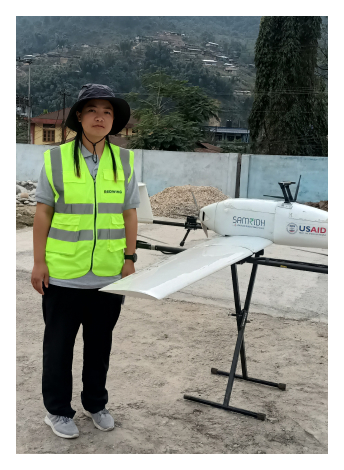Medicines From the Sky might sound like science fiction, but that is exactly what Redwing Labs is providing to remote districts in Arunachal Pradesh. Redwing Labs’ district-wide solution has a fully functional drone hub with 6-8 drones near the District Hospital (DH), and these drones deliver over 150 medical products to all the Community Health Centres (CHCs) and Public Health Centres (PHCs) in remote areas of the district.
Medicines from the sky (MFTS) project aims to accelerate the transformation of existing health supply chain systems with the use of drone technology for providing healthcare in the remotest areas of the country to ensure that that no one is left behind. Drone operators are the backbone of this project and are responsible for the delivery of supplies such as COVID-19 and routine immunization vaccines, blood products and samples, and emergency medical products. The operators test and finalize the aerial route maps, and ensure smooth drone flights while making sure that the emergency medicines and vaccines reach its destination safely and on time. While women have traditionally been underrepresented in technological sectors, with SAMRIDH’s support, Redwing Labs has created pathways for women to be active participants in drone-based healthcare delivery.

Nikh Jasmine is a paragliding pilot from Arunachal Pradesh and has participated in several paragliding events. Her experience with paragliding fueled her interest in aircraft and choppers. When she read about the recruitment of drone operators for the Medicines From the Sky project, she was immediately interested. She grasped the opportunity when she learnt that the project would be operational in her state and would help in bringing medicines to remote villages. Being aware of the difficult terrain and landslide-prone areas in the state, Nikh realized the difference drones could make in delivering quick emergency supplies to areas which would otherwise be cut off.
Although Nikh feels proud that she is operating a new technology to help people, she does occasionally encounter people who are pleasantly surprised to see a woman with such technical expertise. She is, however, quick to make people aware that women are as capable as men and can perform all technical roles just as easily. Nikh’s message to other women is to not let themselves fall into the trap of self-doubt because of their gender. She believes that the more women believe in themselves, the further they will reach.
The healthcare supply chain systems in India cannot presently offer prompt and dependable services in remote and hard-to-reach areas. Due to the difficult terrain coupled with challenges related to centralized, real-time inventory management and routine quality inspections, healthcare facilities in rural regions and difficult geographies are frequently subjected to inadequacies making them costlier and unaffordable for many people.
Fortunately, with trailblazers like Nikh, we can hope for a better, more inclusive future for healthcare infrastructure in the country.

